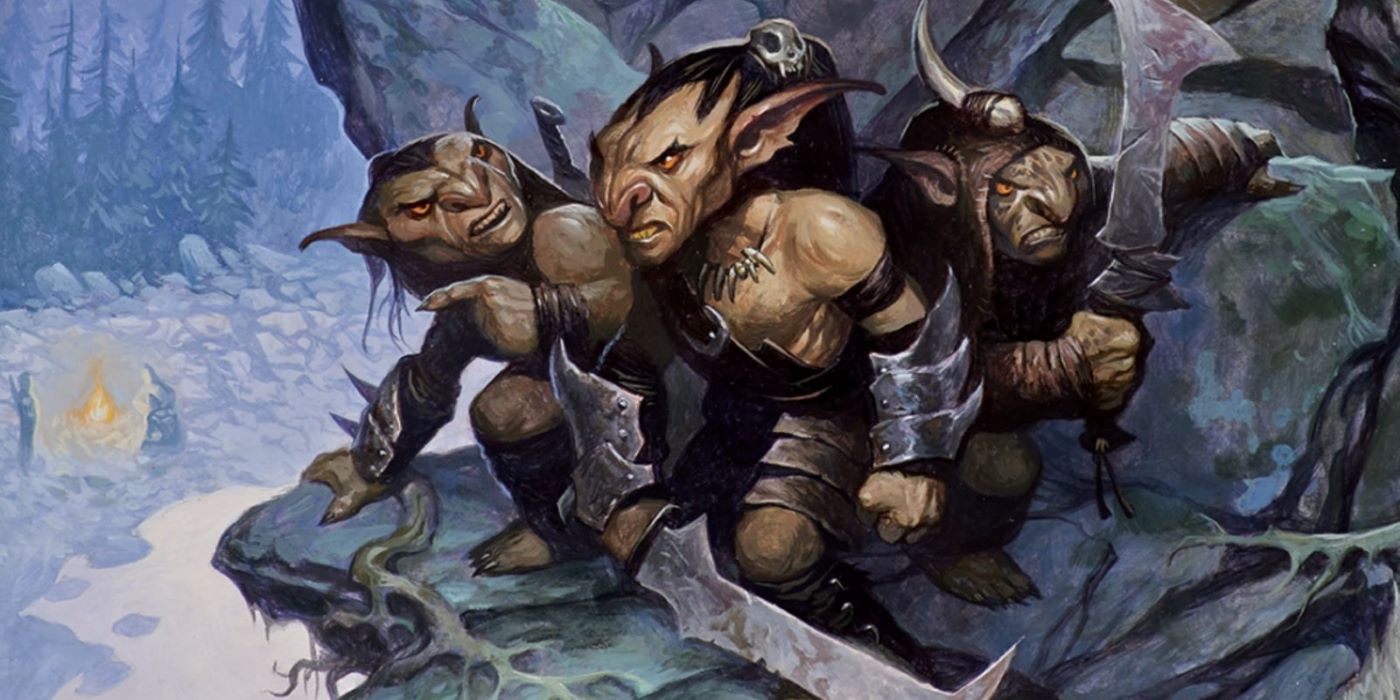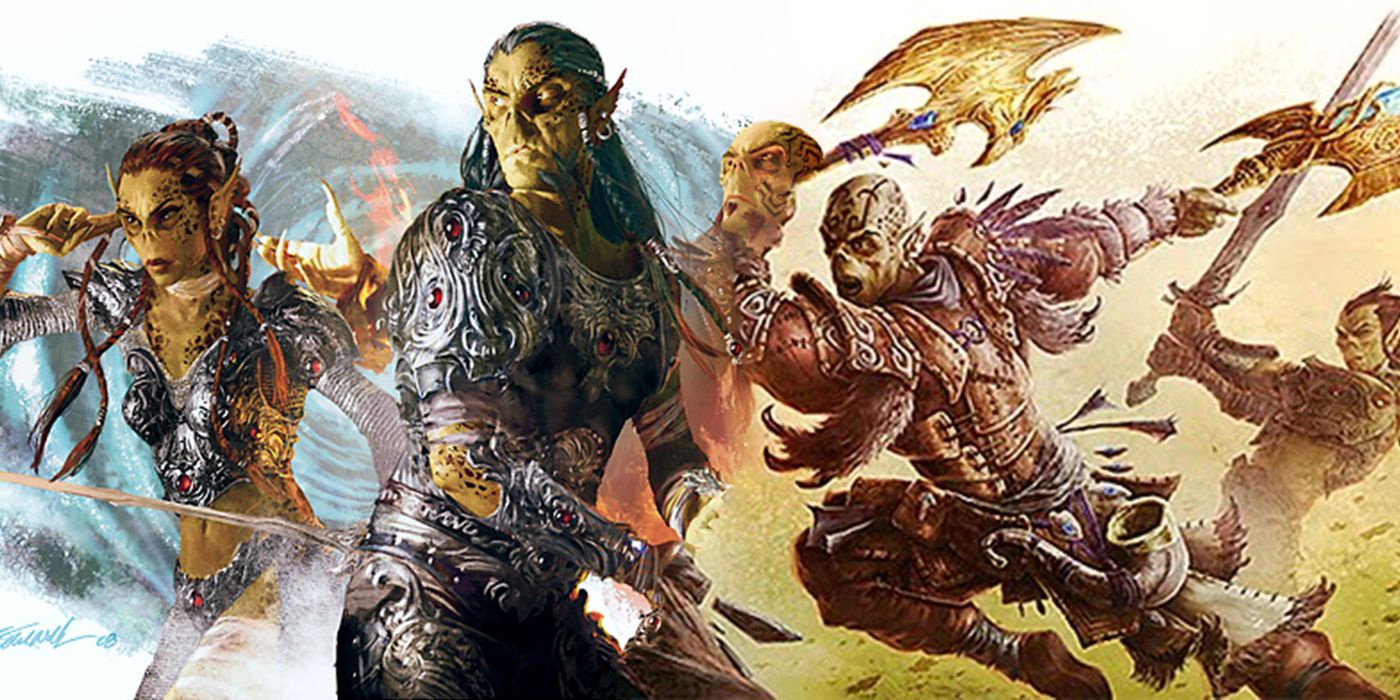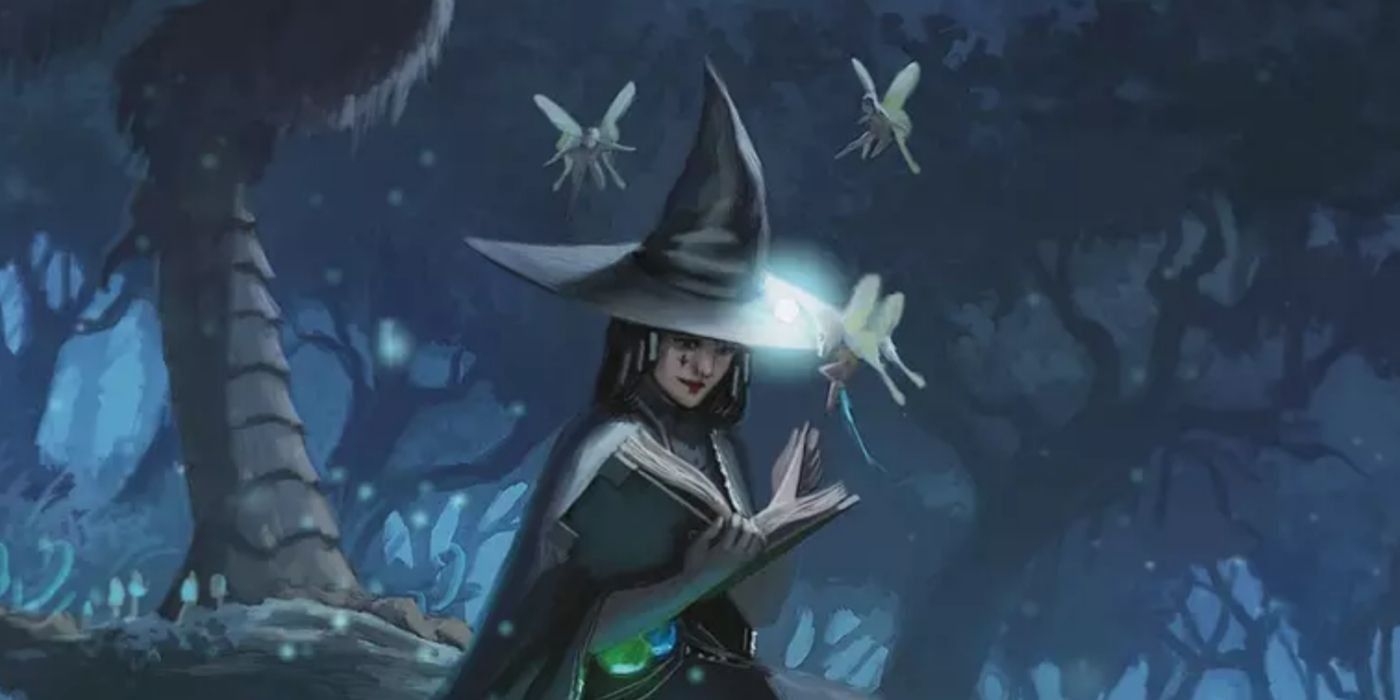Some fans of Dungeons and Dragons, especially long-time veterans, wonder how long Wizards of the Coast will stick with the fifth edition of the game. Traditionally the game frequently goes through new iterations, but 5e might stick around for a long time. Wizards has done a lot to transform and rebirth Dungeons and Dragons 5e in a lot of ways without moving on to a new edition. One big change Wizards has made is a growing overhaul of how it writes player races and encourages players to treat playable races in their campaigns. Dungeons and Dragons is slowly moving away from fantasy conventions, especially those that conceive of some races as inherently evil or "monstrous."
Dungeons and Dragons, like many pieces of fantasy media, have inherited lots of tropes, traditions, and stereotypes that the entertainment industry is only recently starting to reconsider. Wizards of the Coast seems increasingly willing to acknowledge the harmful idea of labeling certain intelligent races as evil and claiming others are always good. It ought to keep publishing sourcebooks and other material that advance this new perspective. For instance, Dungeons and Dragons could stand to add more playable races previously imagined as "monstrous." Making these previously stigmatized races sympathetic and playable is a great way to break down traditions and help DnD modernize.
The Ethical Reckoning in Dungeons and Dragons
As recently as 2016, Dungeons and Dragons still showed a bad habit of making so-called "monstrous" races inferior to traditionally good races. Volo's Guide to Monsters provides an excellent example of this. The book introduced a lot of great player races, like the aasimar and the firbolg, while also including a brief section for "monstrous" races, including familiar races like orcs and goblins. Unfortunately, Volo's Guide described orcs as inherently unintelligent compared to most races, insisted that most "monstrous" races were always inclined toward evil, and so on.
The apparent change of heart within Wizards of the Coast appears in Wayfinder's Guide to Eberron. In this book dedicated to supporting the setting of Eberron, orcs are a playable race, but they've been modified. Wizards of the Coast no longer described orcs as unintelligent, and also offered them additional skill proficiencies based on their traditional intuition and survival skills. Those buffs show Wizards recognized the flaws of representing orcs as inferior. After that, Wizards of the Coast has shown more growth thanks to its sweeping changes to rules around player races in Tasha's Cauldron of Everything.
A New Day for Dungeons and Dragons
Since Dungeons and Dragons is treating 5e races so differently now, Wizards of the Coast should revisit the idea of making previously "monstrous" races playable. There's tons of humanoids that wouldn't be hard to adapt unto fun, unique races for fans to play as while breaking traditional thoughts that some races are inferior. Lots of these potential races get homebrewed into playable stat blocks by Dungeons and Dragons fans anyway, so Wizards of the Coast doesn't have to worry about whether or not there's an audience for a document or sourcebook like this.
One race that would really benefit from a change of treatment like this is gnolls. These hyena folk traditionally suffer a similar fate to orcs: Dungeons and Dragons represents them as bloodthirsty marauders prone to serving fiends and evil gods. Gnolls would make a great martial race similar to orcs or lizardfolk, but with skills that reflect their talents as nomadic warriors. Another potential choice is the bullywug. These frog folk are often used as low-level enemies in swamp settings, and they deserve better than that. Dungeons and Dragons doesn't have a ton of aquatic races yet, so there's room for bullywugs on that front. A playable bullywug race could also accentuate their reputation for stealth and their ability to communicate with frogs.
Those are just a couple of the potential options. Wizards of the Coast could revisit the kuo-toa, the sahuagin, or even some non-humanoid races. Dungeons and Dragons is full of races traditionally depicted as eternally evil that could easily be adapted into approachable player races. Tons of Dungeons and Dragons fans no longer want to be limited by arbitrary stereotypes about the morality of various races, and evidence suggests that Wizards of the Coast is aware of that. The steps it's taken toward correcting this part of the game are good, but there's always more it could do. The next sourcebook ought to explore the potential in some of these races once perceived as "monstrous."
Van Richten's Guide to Ravenloft, the newest sourcebook for Dungeons and Dragons, is available now.



